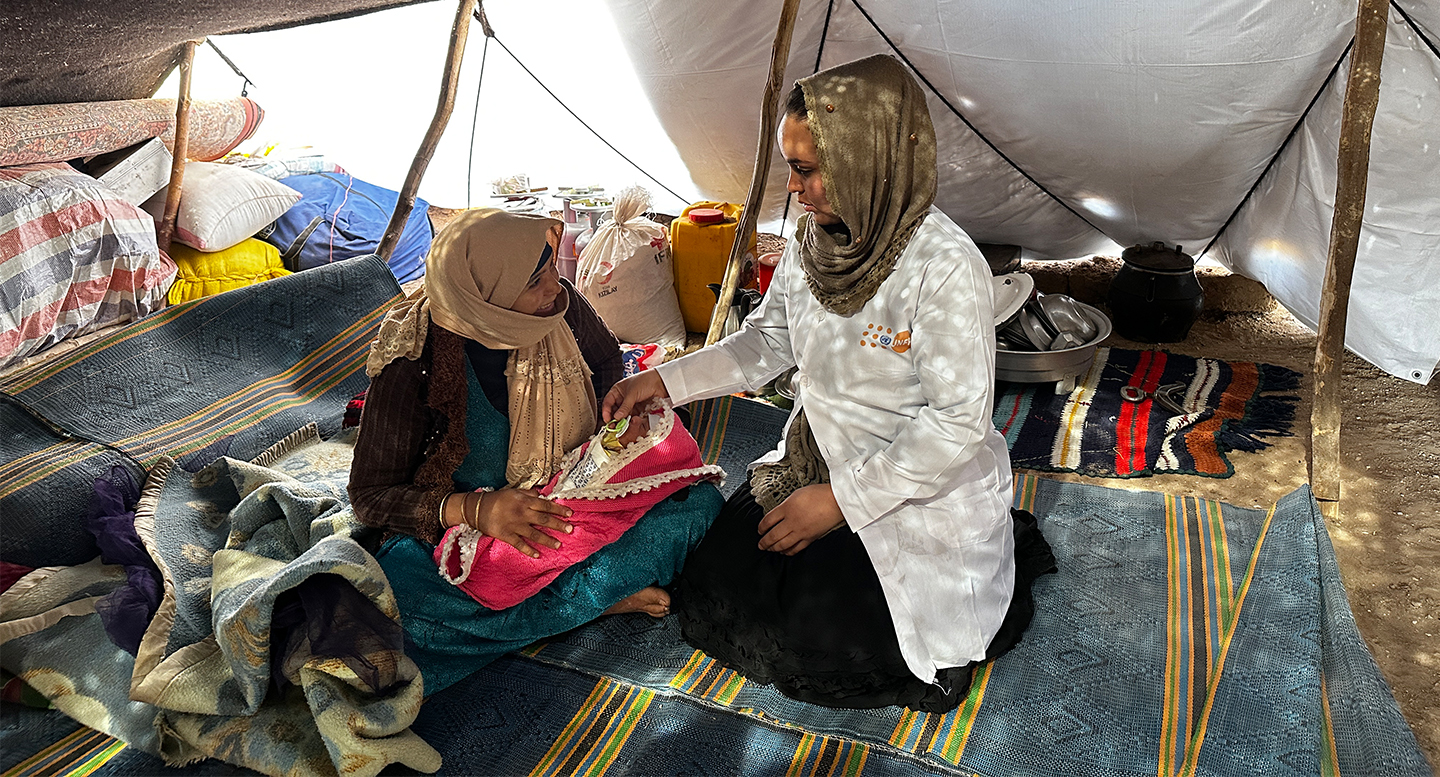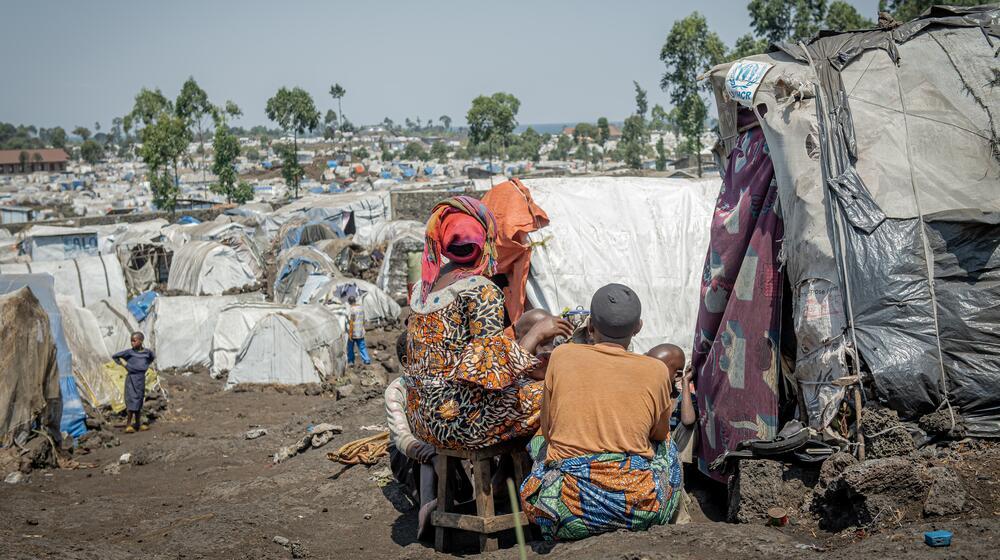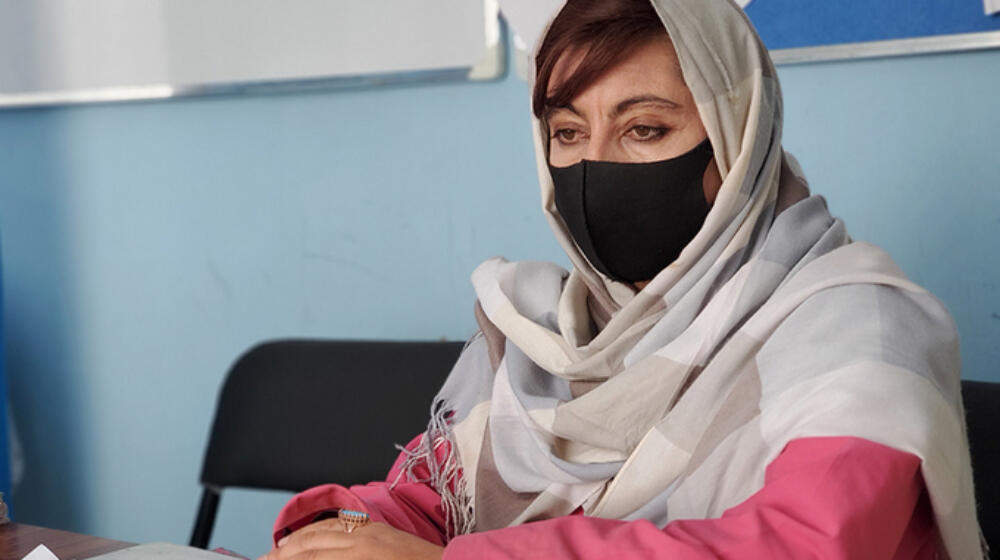
For Afghan women, a rough road ahead
Earthquake survivors face tremendous loss, and new life, amid the ruins
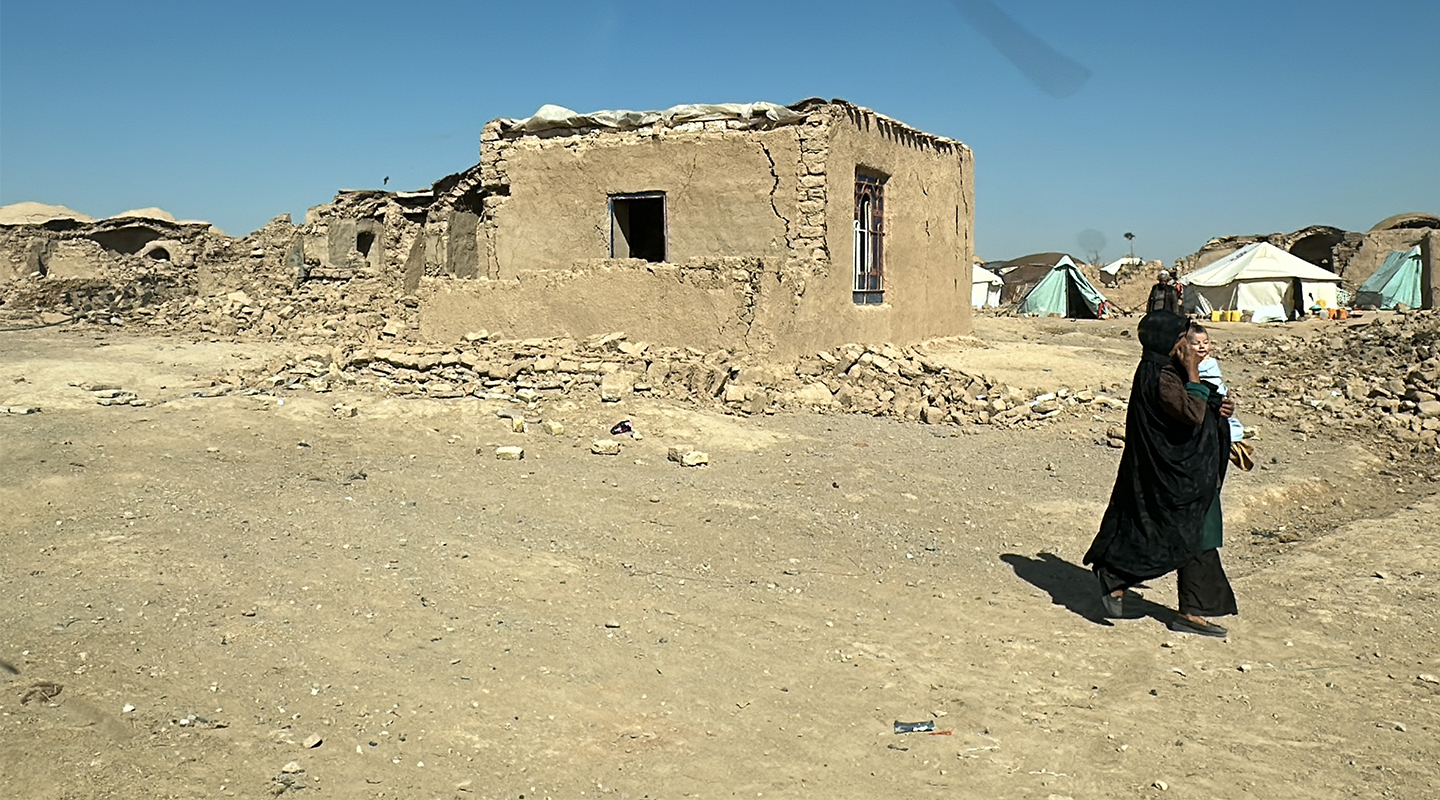
Edima, a young pregnant woman in the rural village of Nayeb Rafi in Afghanistan, dreamed of the day she would bring her first child into the world. Instead, she found herself fleeing for her life as her house crumbled around her.
Three earthquakes struck the western region of Afghanistan over the course of a week in early October, creating chaos, destruction and despair. Nearly ninety per cent of the people killed were women and children, as they were home while the men were away at work. This, at a time when the country was already facing a humanitarian crisis, with political instability, economic decline and three years of drought driving unprecedented levels of hunger.
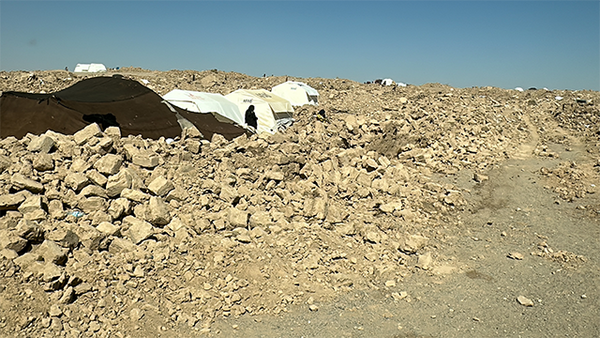
As Edima’s home collapsed to the ground, neighbours rushed to help her, hastily summoning an ambulance. When she arrived at a maternity hospital in Herat, she was so traumatized, she could barely speak, her doctor recalls. Edima had lost her entire immediate family, five members in all.
More tragedy was to follow. “We examined her, and the news was devastating,” says her physician, Dr. Nasrin. “Her unborn child had not survived.”
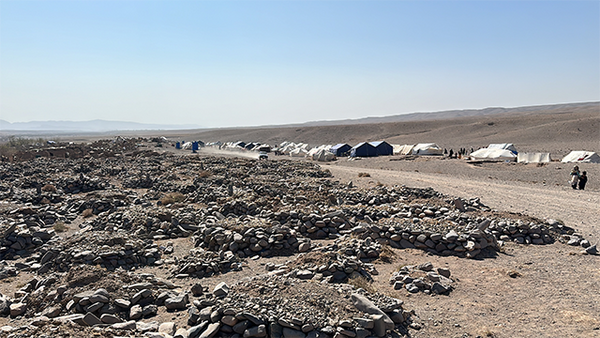
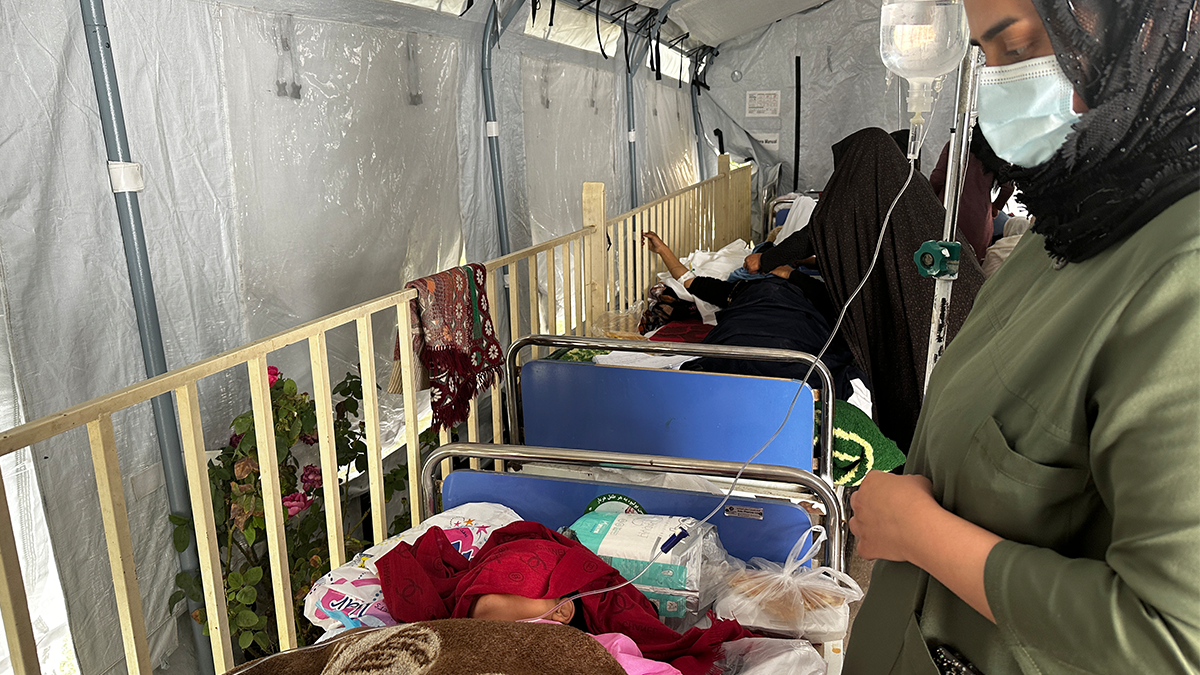
Thanks to the care she received at the maternity hospital, Edima survived, but she needed psychological help to deal with the deep trauma. “Edima was in a state of shock and grief, unable to comprehend the whirlwind of emotions,” says Dr. Nasrin. “The loss of her family and the baby she had so eagerly anticipated was overwhelming.”
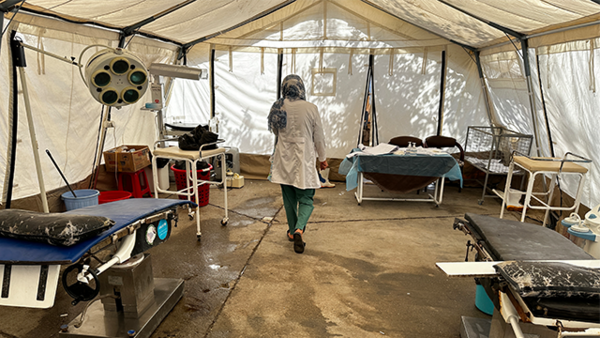
UNFPA was there to help, coordinating with local authorities and partners to provide psychosocial support, in addition to establishing mobile health units offering maternal and reproductive health services and essential medicines and supplies, including for safe births and emergency obstetric care.
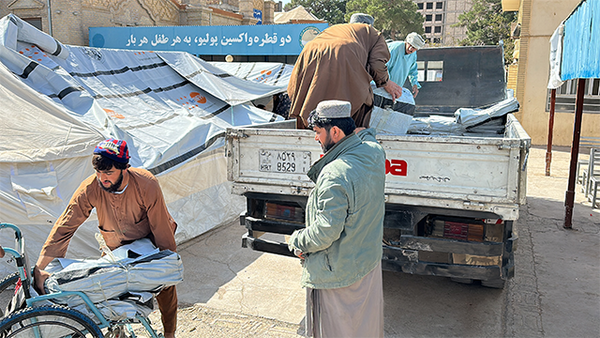
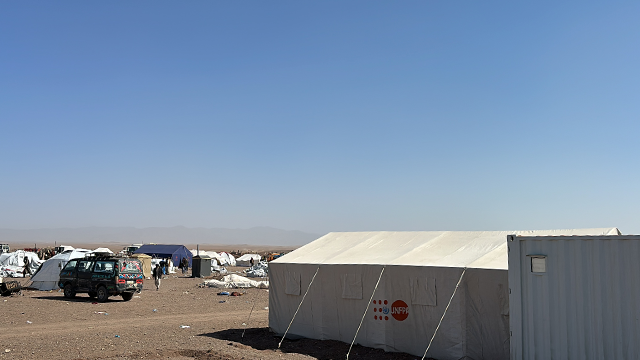
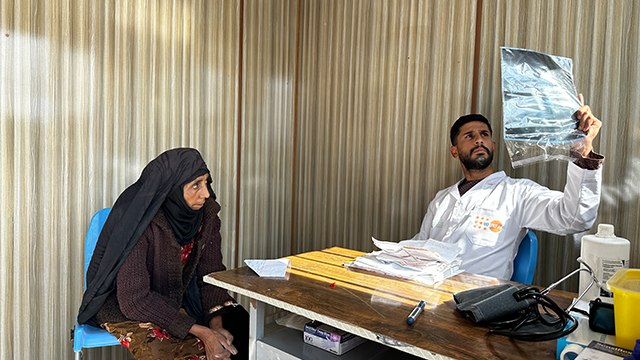
A team of midwives now staffs the mobile health units, offering crucial services for women – whose reproductive health needs are often overlooked when catastrophe strikes.
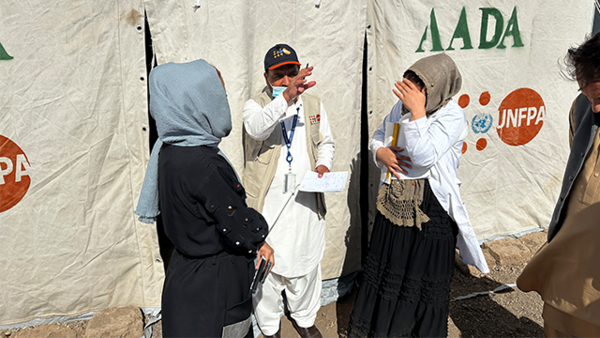
Hanifa, a young pregnant woman from the rural Zinda Jan district, received life-saving support from one of those midwives. When her house fell to pieces, she took shelter in a cramped tent, gripped by fear and uncertainty, as she was beginning to experience contractions. Rahna, a midwife from the UNFPA mobile health team, was dispatched to guide Hanifa through the labour process, helping deliver her baby safely.
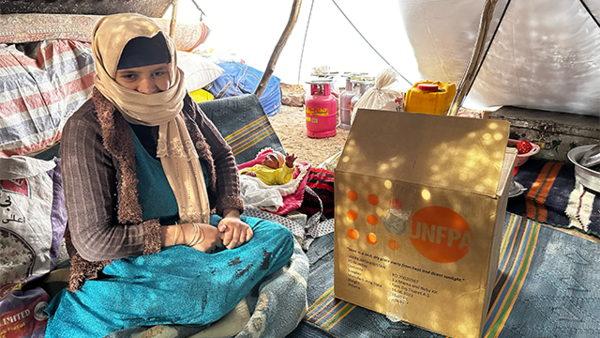
Looking back on the tumultuous experience, Hanifa says, “At first, when those pains hit me, I felt so lost and hopeless. But then Rahna the midwife arrived like an angel. She held my hand, and her words were like a soothing balm for my fears.”
Rahna shares Hanifa’s joy. “It was a challenging situation, but when I saw the relief on Hanifa's face as she held her baby, I felt a profound sense of pride,” she says.
